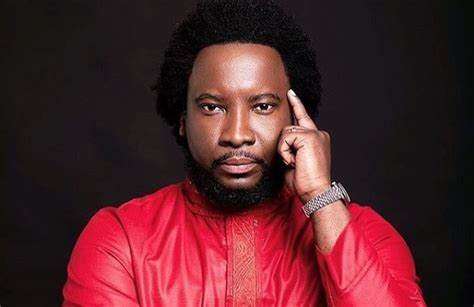There has been a growing number of LGBTQ+ cartoons and content being shown on platforms like YouTube. While they aim to promote diversity and inclusivity, some are concerned about the potential risks these cartoons might pose to children.
It’s important to approach this topic with refinement and consider different perspectives.
Sonnie Badu, who is a renowned gospel musician, disclosed the reason he barred his children from watching or viewing content from social media platforms, especially YouTube.
Indicating the issue of LGBTQ+ becoming a controversy in the country, Sonnie Badu expresses the need to address it appropriately to avoid jeopardizing the morals of children.
“The whole thing is frightening. In schools, in cartoons, and in commercials. In my house, my kids don’t watch YouTube again. Previously YouTube used to show correct cartoons, but today, you’d see a Spiderman kissing a guy in the movie. Sadly, Parents think their kids are watching educative movies, that are full of LGBTQ+ activities so care must be taken,” Sonnie Badu said.
Also, some people worry that exposing children to LGBTQ+ content at a young age confuses or influences their understanding of gender and sexuality. It’s crucial to provide age-appropriate explanations and answer any questions they have.
Concerns arise if the LGBTQ+ cartoons conflict with a family’s religious or cultural beliefs. In such cases, parents need to have open discussions with their children about different perspectives and values, emphasizing respect and empathy for others.
As with any content on the internet, there can be risks associated with unsupervised access. Parents should monitor and guide their children’s online activities to ensure they encounter appropriate and safe content. Utilizing parental controls and discussing online safety measures can help mitigate potential risks.
Some children who identify as LGBTQ+ may face bullying or discrimination due to their gender identity or sexual orientation. While exposure to LGBTQ+ cartoons helps foster inclusivity and empathy among peers, parents, and educators need to address any negative behavior and provide support to children who may experience such challenges.
Ultimately, the impact of LGBTQ+ cartoons on children depends on various factors, including age, context, and parental guidance. Open and honest communication, age-appropriate explanations, and fostering an inclusive environment can help children navigate these themes in a positive and supportive manner.
Sonnie Badu Makes Bold Claims

While it is true that there are notable gospel musicians who identify as LGBTQ+ in the United States, it is challenging to determine a specific percentage or quantify their representation within the gospel music community.
Gospel music, as a genre, has a diverse range of artists, including those from the LGBTQ+ community. However, it should be noted that the level of openness and acceptance varies within different religious communities and denominations, which may impact the visibility and acceptance of LGBTQ+ individuals in gospel music.
It’s important to recognize that the experiences and representation of LGBTQ+ individuals within the gospel music industry are complex and diverse.
Ghanaian Pastor and gospel musician Sonnie Badu claimed that a significant percentage of American gospel musicians are part of the LGBTQ+ community.
Sonnie Badu, the lead pastor of Rockhill Church in Atlanta, revealed that about 78% of American gospel musicians and pastors are involved in LGBTQ+ activities.
“In America, about 78% of gospel musicians there are gay; most of these popular musicians that we play their songs on our airwaves and in our Churches are into LGBTQ+ activities. If you get to know them, you won’t even play their songs again. Even some of the Bishops that we follow and listen to are involved in LGBTQ+ activities,” he said.
He noted that he was once warned by a fellow gospel musician not to interfere in such matters.
Also, the gospel musician expressed his concerns over the influence of the LGBTQ+ agenda, which he noted is present in various aspects of society, including media, education, and entertainment.
Meanwhile, the anti-LGBTQ+ Bill passed by Parliament on February 28, 2024, still awaits Presidential assent.
The Bill aims to make it illegal to practice or promote LGBTQ+ activities, and prosecutors could face 3 to 5 years in prison.
READ ALSO: Ghana Plunges Into A Twin Pandemic







